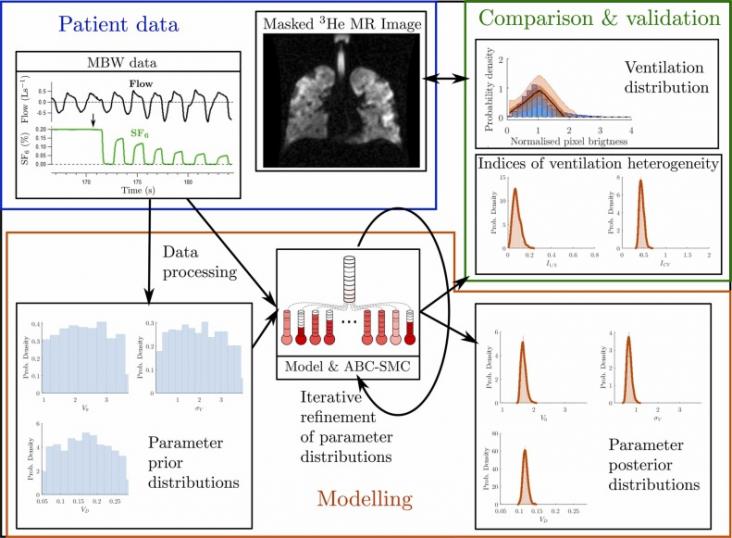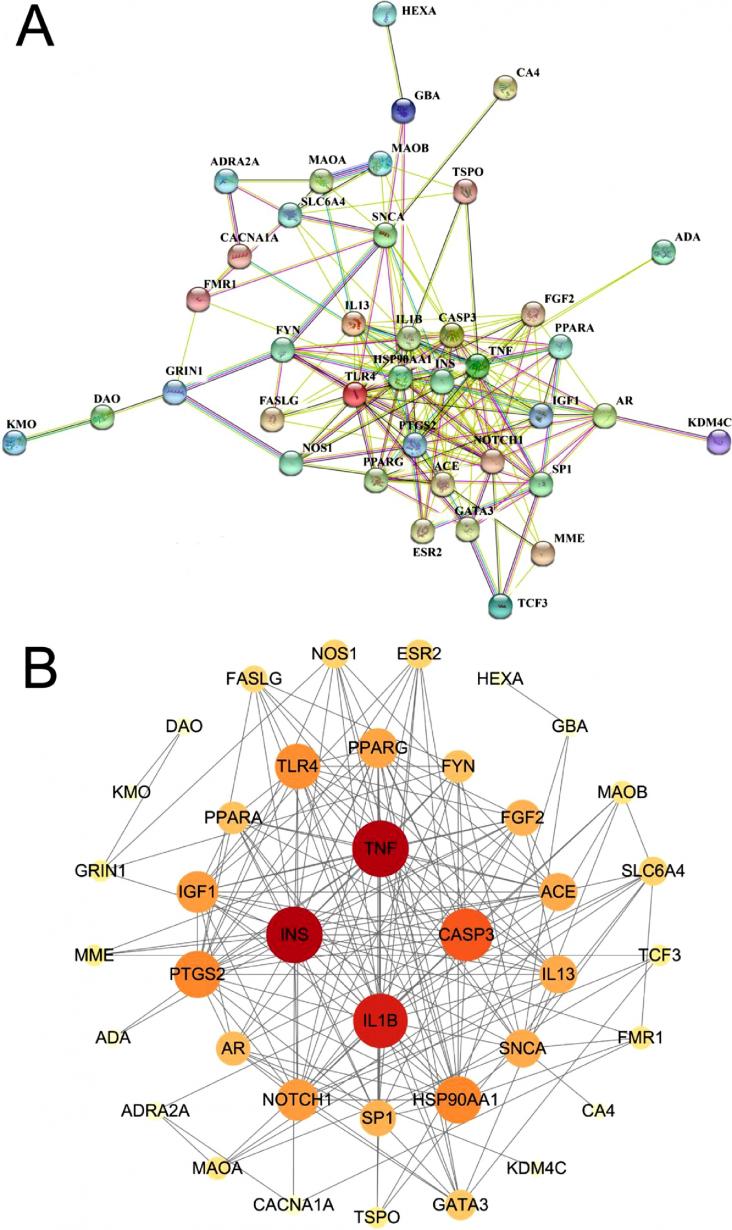
Background: Indices of ventilation heterogeneity (VH) from multiple breath washout (MBW) have been shown to correlate well with VH indices derived from hyperpolarised gas ventilation MRI. Here we report the prediction of ventilation distributions from MBW data using a mathematical model, and the comparison of these predictions with imaging data. Methods: We developed computer simulations of the ventilation distribution in the lungs to model MBW measurement with 3 parameters: σV, determining the extent of VH; V0, the lung volume; and VD, the dead-space volume. These were inferred for each individual from supine MBW data recorded from 25 patients with cystic fibrosis (CF) using approximate Bayesian computation. The fitted models were used to predict the distribution of gas imaged by 3He ventilation MRI measurements collected from the same visit. Results: The MRI indices measured (I1/3, the fraction of pixels below one-third of the mean intensity and ICV, the coefficient of variation of pixel intensity) correlated strongly with those predicted by the MBW model fits (r=0.93,0.88 respectively). There was also good agreement between predicted and measured MRI indices (mean bias ± limits of agreement: I1/3:−0.003±0.118 and ICV:−0.004±0.298). Fitted model parameters were robust to truncation of MBW data. Conclusion: We have shown that the ventilation distribution in the lung can be inferred from an MBW signal, and verified this using ventilation MRI. The Bayesian method employed extracts this information with fewer breath cycles than required for LCI, reducing acquisition time required, and gives uncertainty bounds, which are important for clinical decision making.
Elemental selenium, a new type of selenium supplement, can be biosynthesized via microorganisms. This study is to characterize a patent probiotic bacteria Enterococcus durans A8–1, capable of reducing selenite (Se6+ or Se4+) to elemental selenium (Se0) with the formation of Se nanoparticles (SeNPs).
This Article supports SDGs 3 and 13 by showing that plant-based beef alternatives could reduce the carbon footprint of the US food system, but highlights that reductions in other envirnmental dimensions are dependent on repurposing of resources.
This content links with Goal 3: Good health and well-being and Goal 10: Reduced Inequalities by providing content of Wilson Disease in children including manifestations and management.
This chapter advances the UN SDG Goal 3: Good Health and Goal 10: Reduced Inequalities by highlighting the disparities in access to and use of digital health which mirrors the disparities in diabetes prevalence and outcomes.
An Article in support of SDGs 3 and 13, projecting the possible future mortality burden due to hot nights, rather than quanitfying the effects of average daily temperatures
Schilder's disease is a rare form of multiple sclerosis. It concerns mostly teenagers and young adults. The Clinical signs and symptoms might be atypical for early multiple sclerosis which often mimics intracranial neoplasm or abscess.
This research provides the first evidence of AD-related Aβ pathology outside the brain. Lens Aβ can be noninvasively measured in vivo for early AD detection and monitoring.

The results of this study suggest that trans-UCA facilitates spatial memory in the Y-maze test and OLR task and may offer therapeutic potential for Alzheimer's disease (AD).
This article assesses the effects of mental health on post-surgical outcomes of carpal tunnel release.
